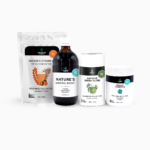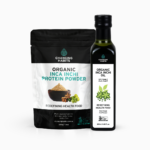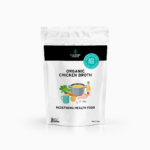In my 1998 book Changing Habits Changing Lives I talk about how food can change mood and mental acuity. I had read the book in the early 1990’s – Managing Your Mind and Mood through Food by Judith J. Wurtman (1988). Judith showed how foods effect neurotransmitters either dopamine, the pick me up brain chemical or serotonin, the calm me down neurotransmitter.
It showed how proteins increased dopamine and carbohydrates increased serotonin. Fruits, herbs and vegetables were neutral and fatty fried foods and or overeating caused brain fog.
This was long before we had much research on the microbiome and its effect on thinking, choices, feeling great or feeling bad.
Back in the 1980’s the microbiome had more diversity and more robustness which in turn created a healthy body physically and mentally, so it was easy to show in the biochemistry of the brain and the selective uptake of the blood-brain barrier how food chemicals and certain foods effect neurotransmitters. These days with the diminishing diversity of the microbiome and the uprisal in mental health issues, we can start to find correlations that may be causing both maladies and being connected at the same time.
Our knowledge is now exponential on this topic but for some reason, it is only just becoming a mainstream point of discussion.
Could it be the fact that SSRI (Selective serotonin reuptake inhibitors) is now seen as faulty science and are no better than a placebo?
Whatever it is, it doesn’t matter, what is important is that people are thinking about diet and lifestyle when it comes to health both physically and mentally.
If you went to a doctor – let’s say a GP or psychiatrist – and were diagnosed with a mental health condition and were told to go on anti-anxiety, anti-depression anti-psychotic medication and if you had questioned whether your mental illness had anything to do with your diet and lifestyle, the answer from your medical doctor would have been ‘No, eat what you want it will make no difference’. In hindsight, these doctors would have been wrong and now science is showing how robust physical health can help with mental health issues. The problem is finding the robust health that diminishes as each decade of increased food and environmental chemicals. Medications decimate and cause the destruction of important microbes in the microbiome so that humans can live long, happy, healthy lives.
Let’s review the history of the GUT and Brain connection and what we know.
- 500BC Fasting and other dietary regimens were used to treat epilepsy.
- 450BC Hippocrates said – “all disease begins in the gut”. (1)
- 1910 George Porter Phillips reasoned that ‘melancholia, with its attendant constipation and faulty alimentation, lends itself at once to a dietetic form of treatment’, and gave Lactobacillus cultures to a few of his patients. Philips was impressed with the results: ‘Even after a few days’ treatment, one is able to notice a difference in the appearance of the patient. The complexion is clearer, and wears a happier expression’
- 1920 – 1940 to mimic the effects of fasting the ketogenic diet was used by the modern physician to treat epilepsy. This fell out of favour with the invention of anti-epileptic medications. (2)
- 1998 Andrew Wakefield and 11 other co-authors published a study: Ileal-lymphoid-nodular hyperplasia, non-specific colitis, and pervasive developmental disorder in children. In other words, how the health of the gut effects the brain and development of a child.
- 2004 GAPS , Gut and Psychology Syndrome – Dr Natasha Campbell Mc Bride showed the link between gut health and autism.
- 2010 TED talk – The Brain in Your Gut – the “hidden brain” in our gut and the surprising things it makes us feel – A tale of two Brains Herbert Watzke (3)
- 2014 Giulia Enders book ‘GUT – The inside story of our body’s most under rated organ’ and her chapter on how the gut influences the brain, irritated bowels, stress and depression, and where the ‘self’ originates.
- 2021 Diet and the Microbiota-Gut-Brain Axis: Sowing the Seeds of Good Mental Health (4)
Today; The ketogenic diet is now not only used for epilepsy but has shown promise in halting brain tumours, changing addictions, helping with chronic pain, depression, anxiety, radiation poisoning, manic depression, bipolar, dementia, and many more mental and physical health disorders.
Not only does diet affect mental health, but exercise, sunshine, sleep, cognitive behaviour therapy, and connection, have also played a significant role in helping with mental health.
We can easily show that there is a gut-brain axis. If I was to ask you to speak to an audience of 1000 people on a subject you know nothing about you may have a visceral reaction such as vomiting or butterflies or a gut feeling that you know you can’t do it. Now let’s turn it around. If you have been vomiting or are in the middle of vomiting you feel depressed, and hopeless and wishing you were no longer on this planet, yet all you are doing is throwing up something the body does not need.
The gut-brain axis is facilitated by the vagus nerve, hormones, and neurotransmitters such as serotonin and dopamine which have intricate relationships that cannot be denied. The vagus nerve, Latin for wandering, connects the brain onward through the thorax and abdomen. The gut makes 95% of serotonin which affects mood. The gut depends on the microbiome and our diet to make the precursors to serotonin. Without the precursors, the messengers to the brain become inadequate for good thoughts and good mental health.
I remember after I had COVID, March 2022 I became very melancholic for around 3 weeks and so did my two friends that also had it at the same time. It’s only now that I realise with new research on how the spike protein through the disease or in the vaccine, decimates Bifidus in the gut that this may have been a reason for the mood changes the three of us had. With a good diet and fermented foods, we were all out of the melancholy fairly quickly. But for people who live on the ultra-processed diet that is fairly standard then the replenishment of the Bifidus in the gut may have been prolonged and the melancholy persistent.
Mental health statistics in Australia – 2021 (5)
- Over two in five Australians aged 16-85 years (43.7% or 8.6 million people) had experienced a mental disorder at some time in their life
- One in five (21.4% or 4.2 million people) had a 12-month mental disorder
- Anxiety was the most common group of 12-month mental disorders (16.8% or 3.3 million people)
- Almost two in five people (39.6%) aged 16-24 years had a 12-month mental disorder
Is the answer to drug 2/5th of the population of Australia who has been diagnosed with a mental health disorder?
There is a drug for everything but sometimes the side effects are not worth it. I remember discussing this with a friend of mine who is an emergency care doctor. He told me that if a family brings in one of their members that is extremely depressed, my friend knows if he gives that patient an anti-depressant it will only give that patient the energy to take their own life. Side effects of some of the mind-altering medications include suicidal and homicidal thoughts. It’s interesting to note that many of the gun shootings in the US have been done by people under the influence of a prescribed mind-altering medication.
Changing diet and lifestyle can change our mental health, it’s a matter of whether the individual has the energy, motivation and or strength to complete the task. If they do make changes then there will be a dramatic shift in both physical and mental health.
My Suggestions
- Eat a real food diet as suggested in The Healthy Keto Way
- Take up a routine of watching the sunrise and sunset
- Make time to move, walking, swimming, yoga, gym, whatever it takes to move every day.
- Set up for sleep, turn any electronic gadgets off after 6.00pm, create a ritual around sleep, warm shower, essential oils, a book, and a comfortable bed.
- Connect with friends and loved ones often.
- Get out into nature, go hiking either for a day or overnight with a back pack. Nature emits, minerals (magnesium from tree ferns and spore biotics from the air and soil to name a few), it’s a bounty of many unseen health benefits.
- Drink water and take salt. 1/8th tsp of salt for every 500ml of water, make sure your water is clean and pure, do not drink tap water.
- Have a check-up from your preferred health care practitioner (not sickness care) mine has always been chiropractic.
- If you need supplements make sure they are all food-based.
- If you need medications make sure you go to someone who does not say they are for life, but rather for emergencies and once the lifestyle has changed and feeling better then wean off the medication (of course, I’m not talking about life-saving medications like insulin for type 1 diabetics and factor 8 for people with haemophilia).
We have the science and we have the know-how, it’s just a matter of acting on this and making a difference in your life and that of those around you.
References
- https://academic.oup.com/brain/article/141/3/e20/4850980?login=false
- https://pubmed.ncbi.nlm.nih.gov/19049574/
- https://www.ted.com/talks/heribert_watzke_the_brain_in_your_gut
- https://pubmed.ncbi.nlm.nih.gov/33693453/
- https://www.abs.gov.au/statistics/health/mental-health/national-study-mental-health-and-wellbeing/2020-21








0 Comments